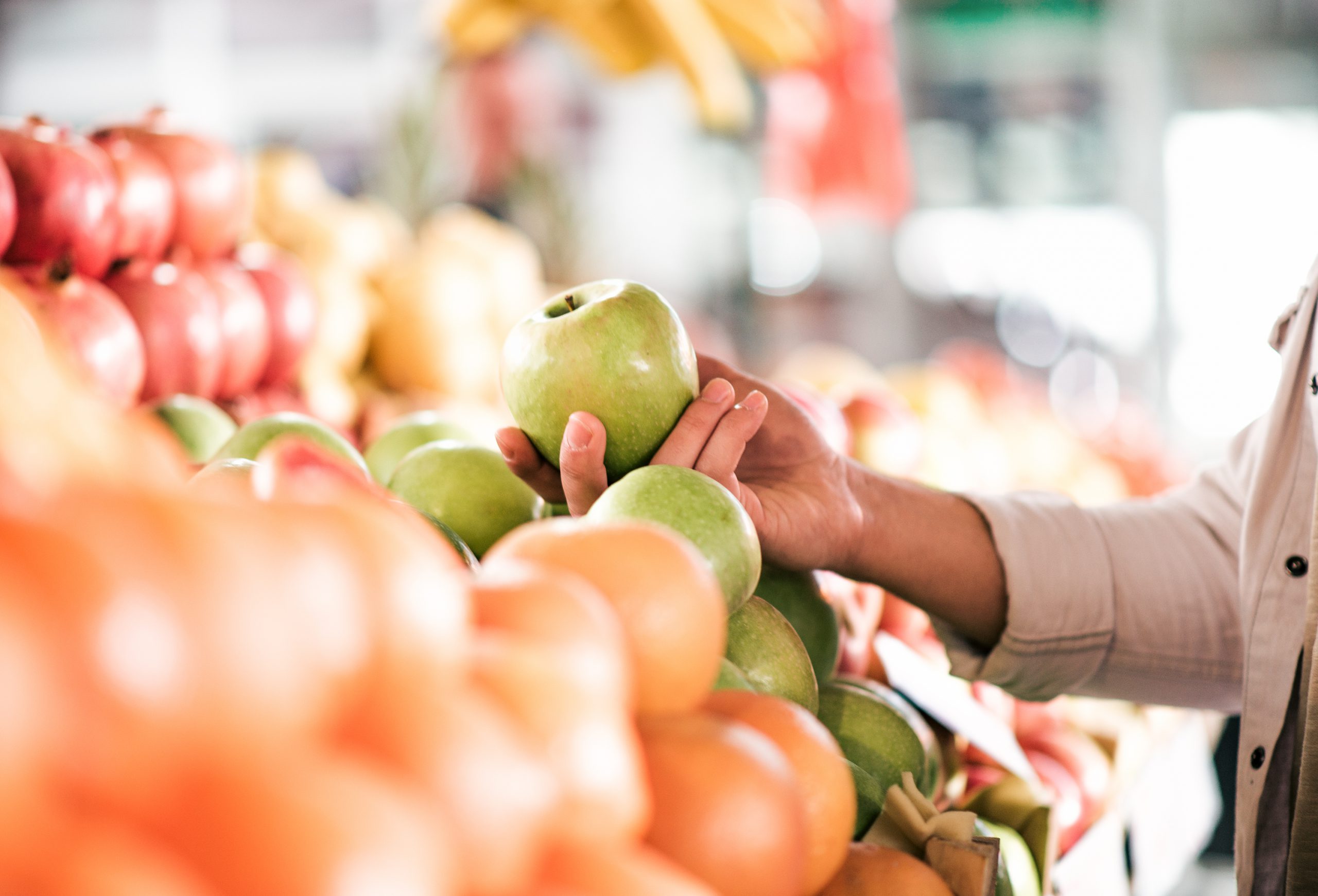Get Easy Health Digest™ in your inbox and don’t miss a thing when you subscribe today. Plus, get the free bonus report, Mother Nature’s Tips, Tricks and Remedies for Cholesterol, Blood Pressure & Blood Sugar as my way of saying welcome to the community!
The pesticides that steal sleep and give you diabetes

When you go to the grocery store, do you buy organic? Or do you save the money and stick with conventional fruits and veggies?
Well, if you fall into the second category, we’ve got big news for you…
Those other fruits and vegetables may be the reason you’re not sleeping so well.
Sleep not only makes you feel rested and ready to take on the world, but sleep keeps you healthy. During sleep, your brain takes the trash out, so to speak. Without proper sleep, your brain is not able to complete processes that help clean out waste from the brain when cerebrospinal fluid flows in the gaps between neurons allowing waste proteins to be flushed into the circulatory system and out of your body.
Lack of sleep has also been associated with heart disease and even cancer.
But when you eat foods that are not organic, not only are you being cheated of more healthful nutrition that should fight disease, you may get a dose of a toxin that’s stealing your sleep hormone and increasing your risk for metabolic disorders, like diabetes.
The pesticides that are destroying your health and sleep
The study builds on past research which has shown that organic food that is free of the chemicals and pesticides that coat our conventional food supply is linked to lower risks of Parkinson’s, cancer and drug-resistant infections.
Performed by a team at the University of Buffalo, this research took a deep dive into how two specific pesticides affect your chances of getting your rest when your head hits the pillow at the end of the day and staying disease-free.
Those two pesticides are known as carbaryl and carbofuran.
And here’s where things get scary…
While the United States still allows our food supply to be sprayed with carbaryl, it’s completely banned in other countries because of its toxic effects.
And that carbofuan? Even though its use has been banned in the U.S., other countries still use it, including Mexico, and traces persist in food, plants and wildlife.
Disrupting melatonin and other body processes
How did the researchers make the connection between these pesticides, melatonin and disease?
Per the University at Buffalo’s website, they used predictive computational modeling and in vitro experiments with cells that express human melatonin receptors, and found that carbamates selectively interact with a melatonin receptor. That interaction can disrupt melatonin signaling and alter important regulatory processes in the body.
“By directly interacting with melatonin receptors in the brain and peripheral tissues, environmental chemicals, such as carbaryl, may disrupt key physiological processes leading to misaligned circadian rhythms, sleep patterns, and altered metabolic functions increasing the risk for chronic diseases such as diabetes and metabolic disorders,” said Margarita L. Dubocovich, PhD, senior author on the paper and SUNY Distinguished Professor in the Department of Pharmacology and Toxicology and senior associate dean for diversity and inclusion in the Jacobs School of Medicine and Biomedical Sciences at UB.
For example, she explained, there is a fine balance between the release of insulin and glucose in the pancreas at very specific times of day, but if that balance becomes disrupted over a long period of time, there is a higher risk of developing diabetes.
Avoiding pesticides
Since melatonin regulates so many processes in your body beyond sleep, including things like blood pressure and heart function, if you can’t use it because it’s inactivated, serious health problems can be just around the corner.
These include:
- Diabetes
- Metabolic syndrome
- Heart disease
- Cancer
How can you know if you’re choosing produce that’s been exposed to either of these pesticides? There’s no sure way to tell. That’s why so many choose to eat organic where possible.
Because it can be costly to choose organic produce, we recommend looking to the Environmental Working Group, or EWG, for guidance. Each year they produce a dirty dozen list of the fruits and veggies that are an absolute must to buy organic. They are recommending that the following foods are safer bought organic:
- Strawberries
- Spinach
- Kale, collards and mustard greens
- Nectarines
- Apples
- Grapes
- Cherries
- Peaches
- Pears
- Bell and hot peppers
- Celery
- Tomatoes
Editor’s note: Are you feeling unusually tired? You may think this is normal aging, but the problem could be your master hormone. When it’s not working, your risk of age-related diseases skyrockets. To reset what many call “the trigger for all disease” and live better, longer, click here to discover The Insulin Factor: How to Repair Your Body’s Master Controller and Conquer Chronic Disease!
Sources:
Dirty Dozen — EWG
Organic Food Helps You Sleep Better, Study Finds — The Institute for Natural Healing













